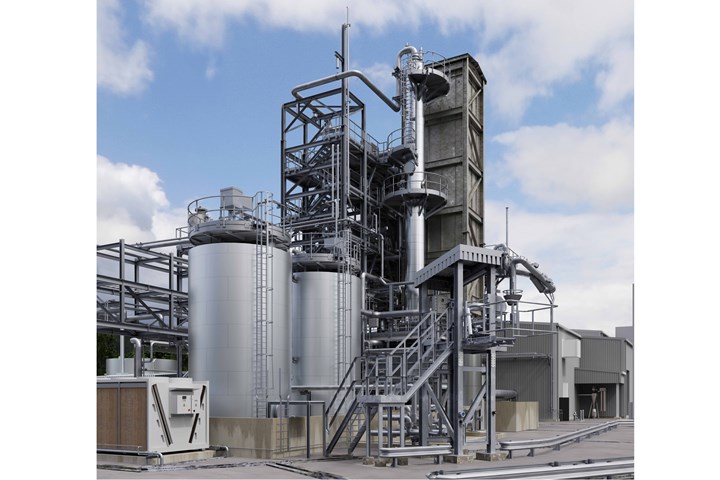Mura Technology Teesside Plant Opens
New facility will use supercritical water in processing plastic into hydrocarbons.
Mura Technology announced the opening of its first commercial-scale HydroPRS facility in Teesside, UK. The HyrdoPRS process uses supercritical steam to break down plastics into useful hydrocarbon feedstock materials. Initial deliveries of hydrocarbon products to Mura’s offtake customers are expected to begin in early 2024.

The main processing structure at Teesside. Photo Credit: Mura Technology
The site has a production capacity of 20,000 tons per year of recycled liquid hydrocarbons, with potential to expand to up to 60,000.
According to the company, the process will be used to convert postconsumer products such as films and trays, providing a recycling path for these materials. Life cycle assessments based on the site at Teesside have shown that the HydroPRS process reduces carbon emissions 80% by diverting plastics from incineration.
“Our HydroPRS process is unlocking a new market for plastic waste, creating value and keeping both plastic and carbon in circularity. The technology works alongside existing mechanical recycling to ensure no plastic types are considered ‘unrecyclable’ and require incineration or landfilling,” says Steve Hahon, Mura Technology CEO.
Mura has been supported by investments from companies across the plastic value chain, including KBR, Dow, CPChem, LG Chem and igus GmbH, alongside funding from UK Research & Innovation’s Smart Sustainable Plastic Packaging Challenge and the government’s Future Fund.
Related Content
-
NPE2024 Materials: Spotlight on Sustainability with Performance
Across the show, sustainability ruled in new materials technology, from polyolefins and engineering resins to biobased materials.
-
BASF Highlighting How They 'Make, Use and Recycle Future Solutions'
NPE2024: BASF is using its proprietary computer-aided engineering tool Ultrasim when designing for sustainability in a broad range of industries.
-
At NPE2024, Follow These Megatrends in Materials and Additives
Offerings range from recycled, biobased, biodegradable and monomaterial structures that enhance recyclability to additives that are more efficient, sustainable and safer to use.














